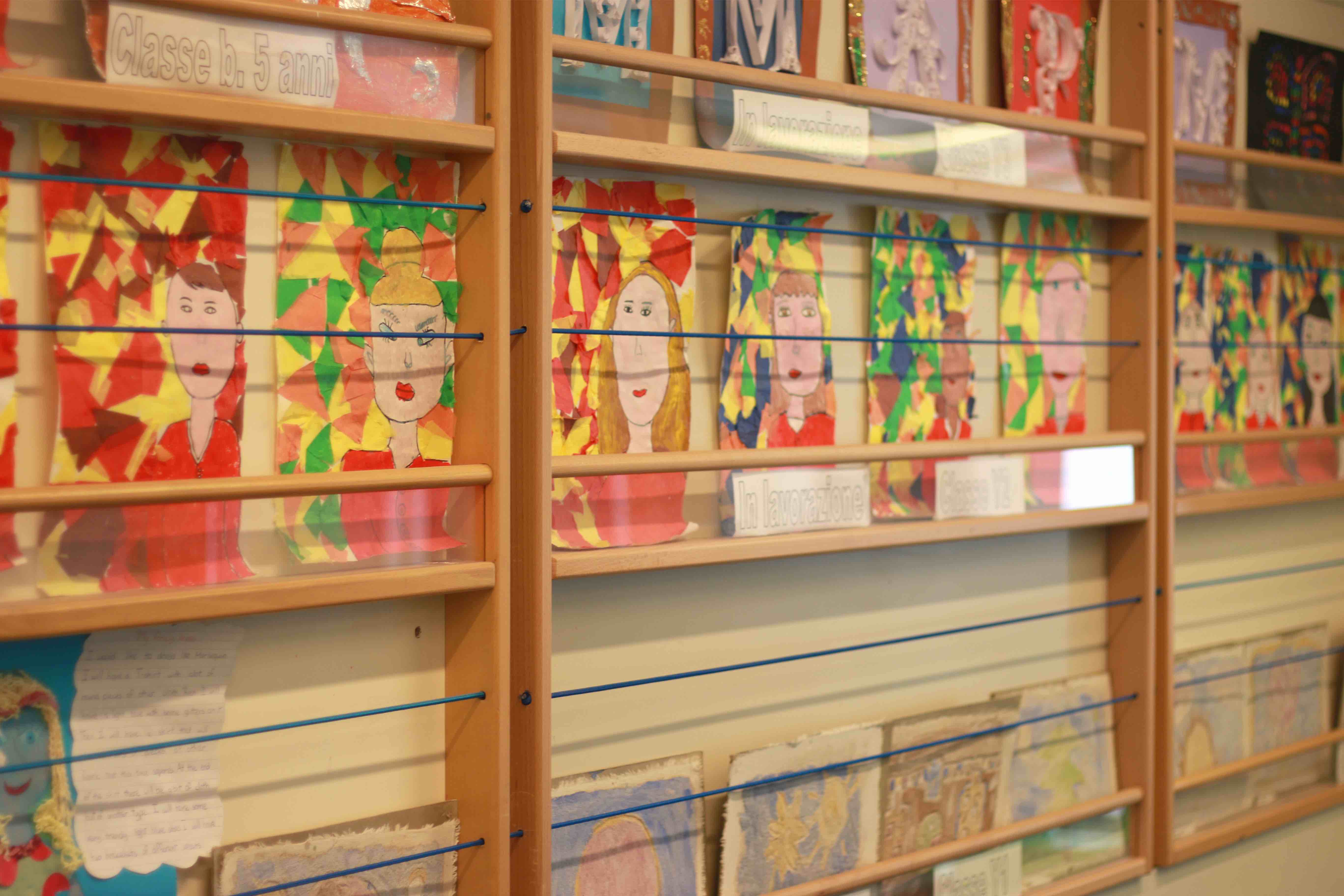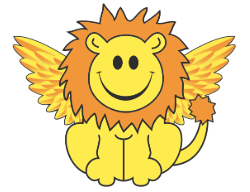The school is dedicated to offering a rich and interesting cultural education through a wide range of different projects every year.


WELCOME TO SCHOOL
The School accepts, within the limits of the available places, Italian and foreign students coming from different school experiences and geographical realities. The teachers elaborate welcoming strategies including:
- drawings or welcome letters written by the students
- teaching support activities (preparation of individualized Italian or English language courses at fixed times of the school day, support strategies in the classroom which include simultaneous presence of Italian and foreign language teachers).
ONGOING EDUCATION
Nursery School teachers, Primary School teachers and Secondary School teachers, work together to guarantee ongoing education:
- Staff meetings to present each individual child and plan the most effective strategies
- Meetings to compare the evaluation criteria
- Meetings between incoming students and current students
For the transition from Nursery school to Primary school, the school organizes two activities aimed at the integration of pupils from the last year of Nursery school and first grade students: the “Mini – Olympics” and the “Animated Reading Session”.
The “Mini – Olympics” are sports games in mixed teams where children compete in various activities which include these skills: running, balance, coordination, obstacle courses.
The “Animated Reading Laboratory”: provides the reading of a text suitable for younger children, written and dramatized by pupils of the Year 5.
In addition, Year 1 students prepare a welcome letter for the new classmates and take them on a school tour to discover new spaces, playground areas where the play together and transmit trust.
To facilitate the transition from Year 5 to middle school, students, spend a day with Year 6, participating in some specially organized lessons.
CONFLICT MANAGEMENT
The school is the most appropriate place to learn emotional, relational and cognitive skills (Life Skills). Mediation is a methodology based on dialogue in the search for answers that satisfy both parties involved (win-win perspective). The project aims to give students knowledge and allow experiences of conflict management techniques, in order to make them able to face and positively overcome the possible situations of confrontation, also and especially with a view to preventing them. In a school, prevention is effective only if the prevention program actively involves all operators. In our school, all teachers are trained in conflict management techniques and know how to intervene and help students in situations where they need help.
The objectives of the project are to:
- promote mutual listening while respecting each other
- provide effective communication tools
- promote understanding of the other’s point of view
- apply problem solving in all its phases to find a point of agreement
- learn to accept an apology
THEATRE
Theatre is an art that helps develop different forms of communication, ranging from the spoken word, to simple gestures. When on stage, the actor learns to overcome inhibitions, allowing even the shyest of the children to express themselves and gradually build their self-esteem.
Every year the school students prepare a recital that is presented to families and friends. The project aims to provide students with an opportunity to stimulate creativity and improve their communication skills using bilingualism and their own interpretative skills.
The “theatre project” has the following objectives:
- the development of self-confidence,
- the development of self-control and concentration
- the development of expressive and communicative skills
- the ability to use spaces and times efficiently
- to encourage collaboration and cooperation with a group.
- to help students overcome inhibitions
- to develop the ability to perform in public
EMOTION MANAGEMENT
The project is aimed at encouraging pupils to acquire personal and social skills.
The basic idea is to provide students with the skills to face school difficulties and conflicts independently. Thomas Gordon, a well-known pedagogist, states that unless a favourable socio-affective atmosphere is created in the classroom, children will not be able to learn efficiently.
The project develops the following themes:
Nursery School: The body; emotions; working together
Year one: All about me
Year two: The family
Year three: Working as a team, places where I feel good
Year four: Group dynamics; feelings and emotions
Year five: Feelings, emotions and empathy
Year six: All about me (part two); How I am and how I used to be. My relationship with others.
Year seven: Personal changes; the growing body; how I feel, changing relationships (my family, friends, peers, adults)
Year eight: All about me: my style, my look, how I communicate, the news, my tastes, my interests, my projects and choices for the future.
The project sees the participation of both internal and external specialists.
JOURNALISM
At the end of the school year the school publishes a yearly magazine called “Yearly Gossip”. The magazine is a collection of all the fun events that the children take part in throughout the year and it will be fun to look back on the magazine in later years.
READING
To encourage the pleasure of reading students visit the school library regularly. The library offers a stimulating and peaceful enviroment where children can sit and read quietly. There is a wide range of reading material available both in English and Italian.
COMPUTATIONAL THINKING AND CODING
Computational thinking defines the procedures that are activited to reach set objectives.
The project aims at teaching ICT basics in a fun and extremely simple way, through coding.
Coding is a way of helping children to develop logical thinking, learning to break down a big question into simple sections.
At Pianca school learning to code is taught both with and without the use of a computer.
STUDY METHOD
The study method begins in year three primary school and aims at helping the children to develop their own personalized study method.
The project stimulates memory strategies that are inherent within the child.
The metamemory is not a particular form of memory, but a cognitive activity of the memory processes that the child puts into action to answer the question: “Which memory strategy will be more effective for this type of information?”. It also takes into account the different ways of approaching learning according to the 5 cognitive styles:
- Systematic / intuitive style, to formulate hypotheses
- Global / analytical style, to analyze
- Impulsive / thinking style, to make decisions
- Verbal / visual style, to memorize
- Convergent / divergent style, to develop autonomous paths
The project is aimed at encouraging the acquisition and use of memory strategies both at school and in daily life, according to the cognitive styles of each individual.
This translates into a personalized study method.
The project includes an initial assessment phase through the administration of the Mnemo Test (Cottini L.) and a phase of educational intervention to lead the children to find personalized study and memorization strategies.
The administration of the Mnemo Test allows for the:
- Initial evaluation of the strategic attitude in the mnestic tasks
- Evaluation to be focused on individual memory strategies
- Evaluation and recognition of personal cognitive styles
The project is focused on:
- Training of memory strategies
- Metacognitive training
- Analysis and understanding of the text
- Selection of information and learning to underline key concepts
- Representation of selected information with maps, charts, summaries, lap books
- Verbalization of what has been memorized
MUSIC - CHOIR
The “Canto Corale” project, recognises the important education value of learning to sing together. It involves all the pupils of our school, from the Infant school to Year 3 Secondary school. The pupils learn songs with variable difficulty depending on the age and ability, demonstrated by each individual pupil.
Being part of the choir is also an opportunity for growth: the more extrovert student, is given a further opportunity to express himself, the exuberant students are trained to listen and respect the rules and the more timid discover the beauty and strength that comes from being part of a group.
The main purpose of the project is to promote the educational value of music and the acquisition of transversal skills of attention, self-control, expression and communication.
In our school Music is taught by a qualified teacher with specific competence in the subject.
The program includes workshop activities including: expressive motor skills, listening, singing, sound, rhythm and movement, reading and writing music, playing an instrument (the recorder) and being part of an orchestra.
MEMORY BOOK
The project provides an opportunity for the student to reflect on personal affective and relational themes. The project, started at the Infant school, continues in the 5 years of Primary school. Every year students are asked to develop the same theme, seen, thought and analyzed at a different age. The works are collected and sorted together, thus building a documentary book of the child’s emotional and creative path.
KANGOUROU - MATHEMATICS OLYMPIC GAMES
The Kangourou project includes participation in the Kangourou mathematical games. The games were created in Australia in 1981 and were introduced to Europe in 1991.
In Italy the games are organized annually by the Cultural Association Kangourou Italia, in collaboration with the Department of Mathematics of the University of Milan.
The competition, which is carried out simultaneously in all the countries participating in the initiative, aims to promote the widespread of basic mathematical culture. The students are engaged in answering a set of multiple choice questions of varying difficulty. This project involves pupils from year three primary to year six middle school and makes it possible to use the knowledge acquired in mathematics with logic and rationality. The competition provides a ranking and the possibility of access to the semi-finals and the finals, with students from all over Italy. The project aims at motivating pupils to work hard and commit themselves thus improving and achieving the ability skills in order to deal with various problematic situations with ease.
Copyright © 2015 Pianca Happy English School Impresa Sociale S.r.l - Informazioni Legali - Privacy Policy

